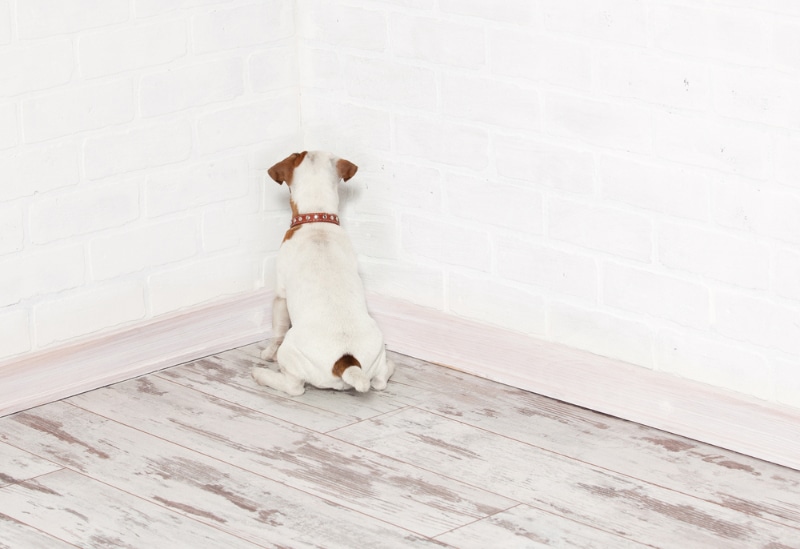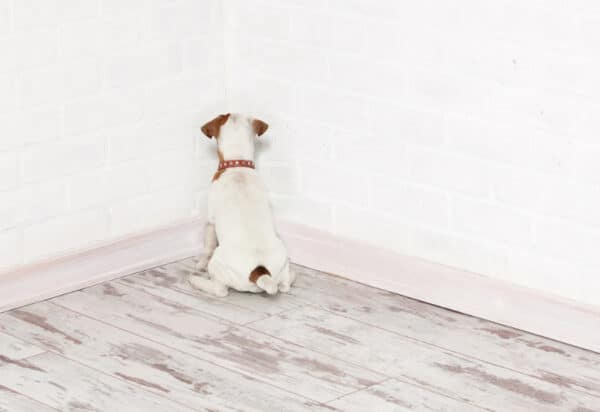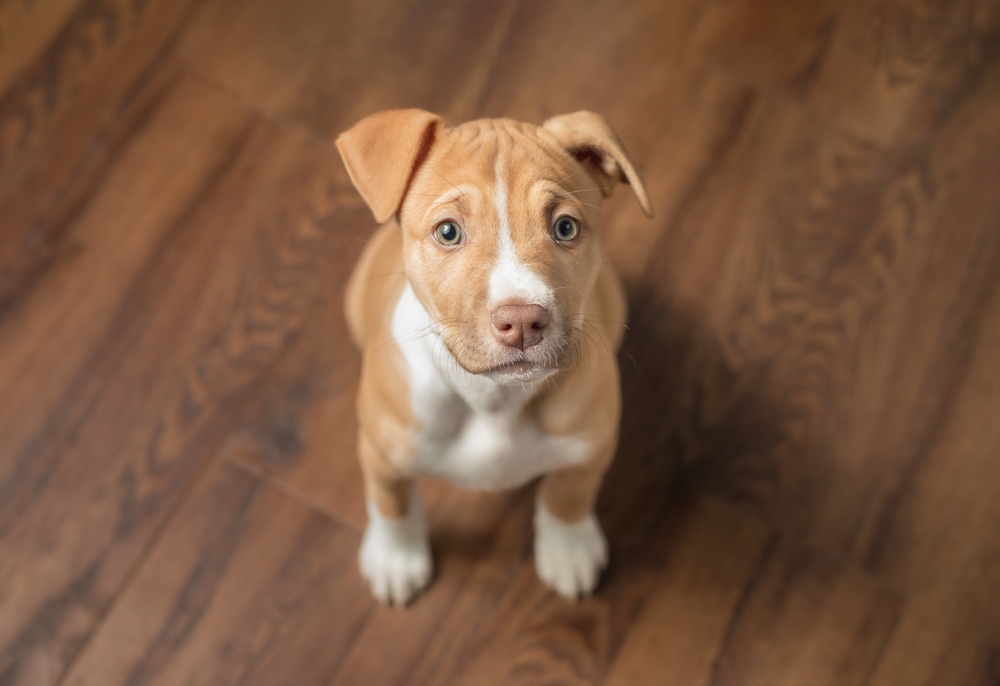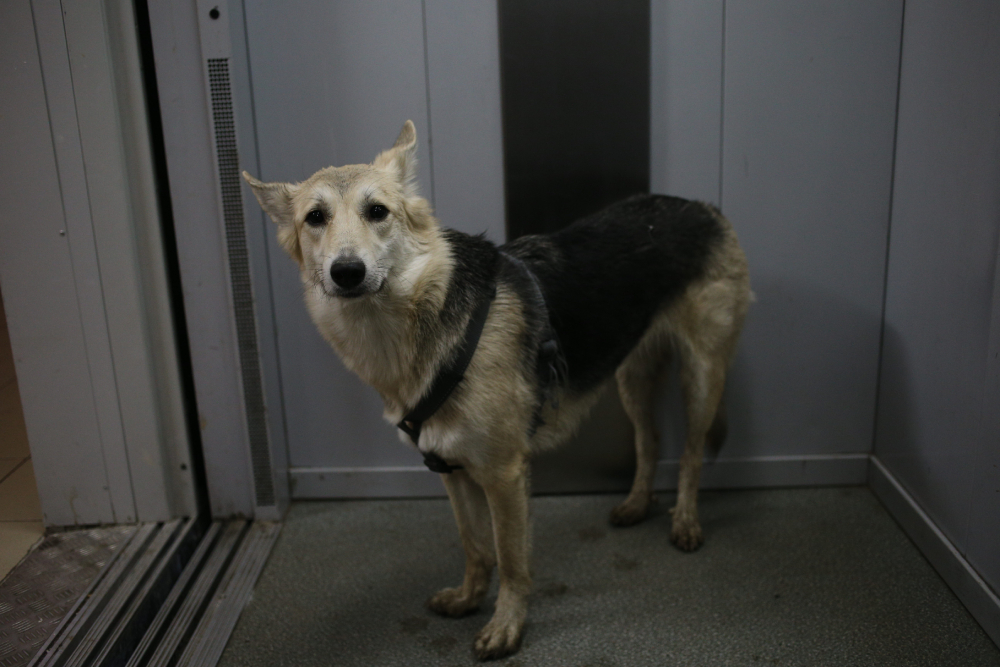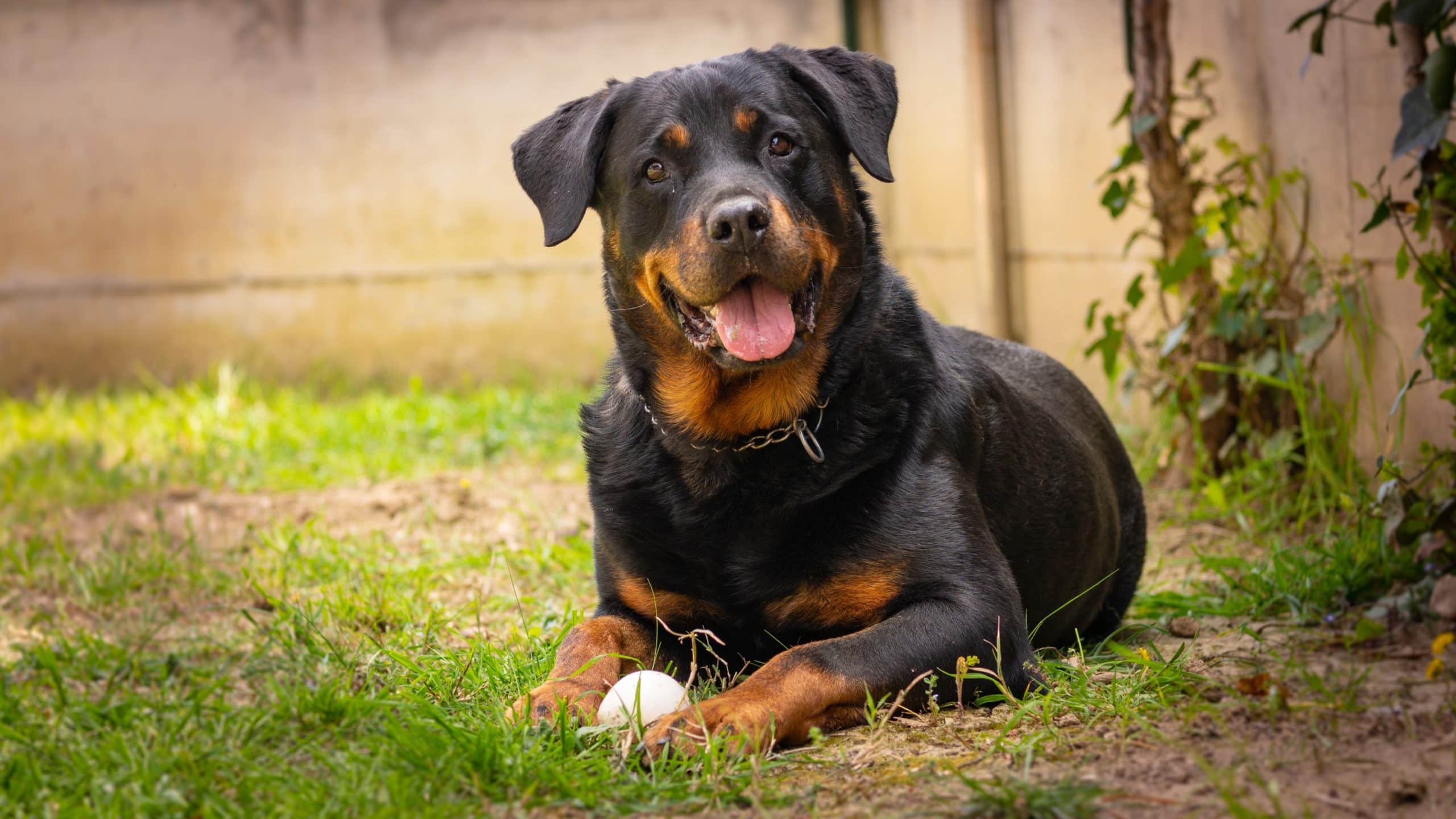Our dogs do all sorts of things that make us go, “Hmm.” If your dog seems to be staring at the wall, you might wonder why. But the real answer to why is that it honestly depends. Have you paid attention to body language? Does the dog seem excited, lethargic, rambunctious?
The overall vibe can tell you a lot about the underlying reason. Here are five reasons that might be why your dog is staring at walls—but only you can tell for sure!
The 5 Reasons Why Dogs Might Stare at the Wall
1. Undetectable Noises
If your dog is staring at the wall, and they seem pretty agitated about what’s going on, they very well might be hearing noises. Is there a mouse scratching around in the wall? Do they hear some commotion going on from the other room across the way?
Regardless of what it is, it might be captivating to them, enough to grab their attention. For example, let’s say you have a child’s room on the other side of that wall. The dog’s hearing is so much more exceptional than ours, they might be able to hear them playing, laughing, or even listening to a show or playing a video game.
Because they can hear it, even when you might not be able to, it might make them wonder where the child is and why they can’t see them. Interestingly, even something like termites can cause odd sounds in walls, which can get your dog’s attention.
2. Unusual Smells
Your dog might be smelling something inside of the wall. In addition to hearing little mice scrambling around inside of the wall, they might smell them too. Our pets can smell all sorts of things that would be hard for us to detect.
So, if your pet seems to be staring at the wall, and then sniffing around the area, it might be because they can just sense something that you can’t. Not only is a dog’s sense of hearing superior to ours, but their sense of smell far surpasses that of humans.
It doesn’t even necessarily have to be a creature inside the wall, but just something that gets their attention.
3. Anxiety
Your dog might be in a state of stones because of anxiety. Sometimes, if you’re really riddled with anxiety on the inside, it can cause you to almost go comatose on the outside, including just staring at things such as the wall. You’ve probably heard of fight or flight, but freeze is another response to stress in animals. Then again, it could be more of a compulsive behavior that has developed over time. Although it’s not common, it isn’t unheard of to think that when a dog experiences anxiety, they might go into a state of dissociation, to some degree.
4. Age
If your dog is just getting older, old age can decline their cognitive ability. This loss of cognitive ability can manifest itself in strange ways. Your dog might seem unusually confused, stare at nothing, or even start other concerning behaviors.
So if your dog has really never stared at the wall before, but seems to be doing it semi-frequently now, it could just be a sense of disorientation. There’s really no rhyme or reason to it, your dog just isn’t as clear-minded as they once were, causing what appears to be odd behaviors.
5. Brain Disease
Like old age, disorders of the brain can lead to confusion and unusual behaviors in dogs. Veterinarians call the behavior of staring at nothing “stargazing”. If the staring behavior happens often you should be alert to other signs of neurological problems like seizures, behavioral changes, and circling.
Although uncommon, stargazing can be a sign of problems in the esophagus or stomach. So if your dog is regurgitating, vomiting, or drooling, it can be worth investigating a gastrointestinal problem.
What Is Head-Pressing?
If your dog is simply staring at the wall, it’s usually not a cause for concern if that’s all they’re doing and it stops after a few minutes. But if the behavior is ongoing or they’re pressing their head against the wall, this is a concern. If you notice your dog pressing their head up against the wall, it is imperative that you get them to the vet as soon as possible. This is a sign of a very time-sensitive issue.
If you need to speak with a vet but can’t get to one, head over to PangoVet. It’s an online service where you can talk to a vet online and get the personalized advice you need for your pet — all at an affordable price!

However, that doesn’t necessarily mean that there is only one reason for head pressing. Here, we’re going to go over a few different causes of this behavior so you know the severity of the situation.
- Neurological Conditions: Certain neurological conditions can cause head-pressing, like canine cognitive dysfunction.
- Toxicity: If certain toxins get into the system, it can impact the dog’s brain—causing head pressing. This is especially common with heavy metal exposure, such as lead or mercury.
- Tumors: Tumors in or near the brain can cause neurological symptoms like head pressing.
- Head Trauma: If your dog has experienced any accidents or blows to the head, it can cause inflammation in the skull—leading to head-pressing.
Conclusion
If you think your dog has an underlying health condition related to staring at the wall, we highly recommend getting them to the vet. They can do a quick check to see if there are any obvious signs of trouble and perform other testing as needed.
However, if your dog seems excited or curious about the wall, there could be small noises or smells happening you can’t even detect. If you observe the behavior long enough, you should be able to decode the mystery!
Featured Image Credit: Gladskikh Tatiana, Shutterstock

